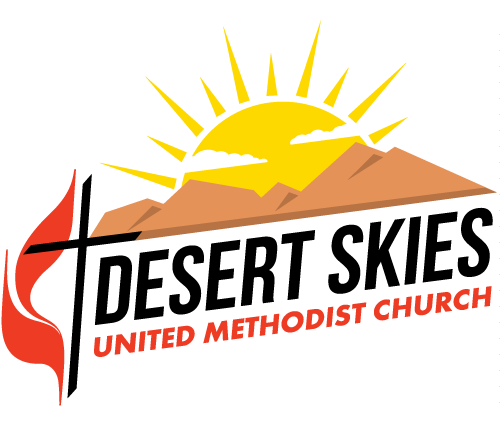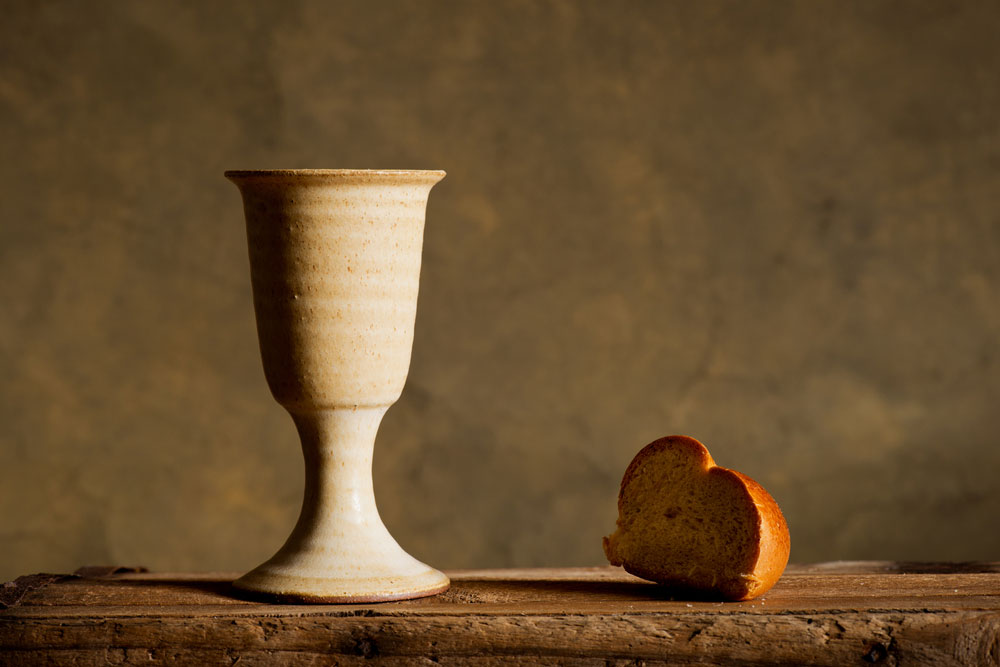Two Holy Sacraments
Desert Skies observes two biblical sacraments rooted in the actions and teachings of Jesus Christ: Baptism and Communion. These sacraments represent a way to make God’s love visible. These sacraments represent both the individual, inward commitment to a personal relationship with Jesus and the corporate, outward sign of being connected to a local community of Christ followers—the local church.
Whether you’re seeking a greater understanding on these sacraments or you’re interested in participating in Communion or Baptism in the future, you can learn more by exploring the topics below.
In Matthew 28:19, Jesus commands His followers, “go and make disciples of all nations, baptizing them in the name of the Father and of the Son and of the Holy Spirit.” Baptism does not provide salvation for an individual, but rather serves to identify publicly the individual as a follower of Christ.
In passages such as Acts 2:41, 8:12, and 10:47-48, the act of Baptism follows an individual’s decision to trust in Jesus Christ alone for salvation. In Romans 6:1-11, the apostle Paul describes the immersion of Baptism as a means through which the believer identifies with the death, burial, and resurrection of Jesus Christ: Going under the water represents Christ’s death and a believer’s death to sin; coming out of the water illustrates His resurrection and the believer’s new life in Christ.
Baptism is an act of obedience to Christ that follows an individual’s acceptance of salvation by God’s grace alone. Baptism isn’t a prerequisite for salvation; however, if an inner commitment to trust Christ alone for salvation has been made, then the outward symbol of that commitment Baptism should follow, as is modeled throughout the New Testament in the lives of those choosing to follow Christ.
We believe that God loves us long before we are even aware of it. We are invited into life, salvation and to be part of God’s family even before we are able to respond to it. Baptism for infants and children emphasizes and celebrates God’s act of grace toward us. It is also a public commitment by the parents and the church community to surround and raise this child to experience and grow into their own personal faith so that one day they may receive for themselves that invitation that was celebrated at their baptism. This usually happens through Confirmation or some other profession of faith.
Jesus’ Last Supper, the Passover meal He shared with His disciples on the night before He was crucified, is the biblical foundation for the Communion meal celebrated in His honor by Christians all over the world today. With His twelve friends gathered around Him for the traditional Jewish Passover meal, Jesus “took bread, gave thanks and broke it, and gave it to them, saying, ‘This is My body, given for you; do this in remembrance of Me.’ In the same way, after supper He took the cup, saying, ‘This cup is the new covenant in My blood, which is poured out for you'” (Luke 22:19-20).
We believe in an open table; that it is God’s desire that anyone seeking to connect to God’s goodness and free gift of His love have all been invited by God to participate. Even Communion reflects God’s desire to redeem from destruction all His creation and all who will accept His invitation.
You do not have to be a member of this denomination or this church or “have it all together” before you can participate. It is exactly because of our brokenness, and our selfish fear-filled lives that we come to God’s table to unite to the One who offers healing and freedom to true life as shown and made possible through his Son, Jesus.
Communion is celebrated at all worship services on the first Sunday of the month. It is also celebrated at some special services as well.
No. In consideration of those who might not be able to celebrate together with us grape juice is used instead.
Yes. Instead of bread, gluten-free wafers are available for those with dietary concerns at the Communion services. Simply let the Communion Server know you would like to receive gluten-free elements.

